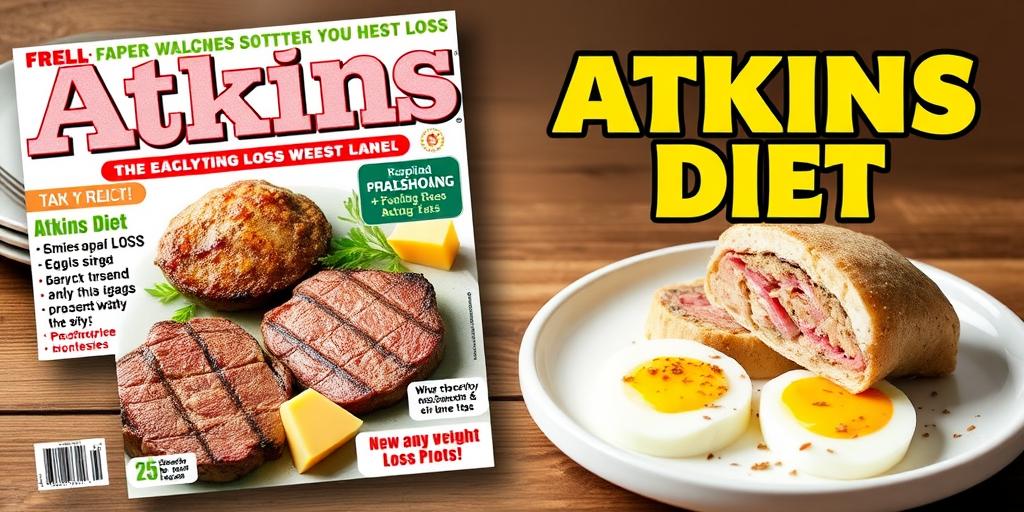The Atkins Diet Craze: A Look Back at Early 2000s Wellness
The early 2000s were a unique time for wellness and dieting. Low-rise jeans were in, and so was the Atkins Diet. This high-protein, low-carb approach took the world by storm, promising rapid weight loss and a way to indulge in previously forbidden foods. Let's take a look back at this significant dietary trend.
What Was the Atkins Diet?
At its core, the Atkins Diet is a carbohydrate-restrictive eating plan. Developed by Dr. Robert Atkins, it focuses on limiting carbohydrate intake while emphasizing protein and fat. The diet is typically divided into four phases:
- Induction: Severely restrict carbs (usually to 20 grams per day) and focus on protein and fats. This phase is designed to kickstart weight loss.
- Ongoing Weight Loss (OWL): Gradually increase carb intake while monitoring weight loss. Introduce nuts, berries, and some vegetables.
- Pre-Maintenance: Further increase carb intake as weight loss slows, aiming to find the carbohydrate level at which weight is maintained.
- Lifetime Maintenance: Continue following the principles learned in the previous phases to maintain weight long-term.
Why Was It So Popular?
Several factors contributed to the Atkins Diet's popularity:
- Rapid Weight Loss: The initial phase often led to quick weight loss, which was highly motivating for dieters.
- Permissive Food Choices: Unlike low-fat diets that were previously popular, Atkins allowed for the consumption of protein-rich foods like meat, cheese, and eggs, making it appealing to many.
- Media Attention: The diet received significant media coverage, including endorsements from celebrities, further boosting its popularity.
Criticisms and Controversies
Despite its popularity, the Atkins Diet faced numerous criticisms:
- Nutritional Imbalance: Critics argued that the diet was nutritionally unbalanced, lacking essential vitamins and minerals found in fruits, vegetables, and whole grains.
- Health Risks: Concerns were raised about the potential for increased cholesterol levels, kidney problems, and other health issues due to high protein and fat intake.
- Sustainability: Many found the restrictive nature of the diet difficult to maintain long-term.
The Legacy of Atkins
The Atkins Diet's influence on the wellness landscape is undeniable. It paved the way for other low-carb diets, such as the ketogenic diet, and changed the way many people think about food and weight loss. While it's no longer the dominant diet it once was, its principles continue to be debated and adapted in various forms.
Conclusion
The Atkins Diet represents a significant chapter in the history of dieting and wellness. Its rise and fall offer valuable lessons about the complexities of weight loss and the importance of balanced nutrition. Whether viewed as a revolutionary approach or a flawed fad, its impact on the diet industry is undeniable. As we continue to evolve our understanding of nutrition, the legacy of the Atkins Diet remains a topic of interest and discussion.
Long-Tail Keywords:
- Atkins diet early 2000s
- Low-carb diet history
- Atkins diet pros and cons
- Weight loss trends 2000s
- Robert Atkins diet plan









